Hillary Clinton sees best-yet fundraising numbers as general begins

Hillary Clinton raised $63 million in July for her presidential campaign, her best month yet and a summertime haul that puts her ahead of President Barack Obama‘s fundraising at the same point in his re-election race. The Democratic nominee also may have outraised her Republican opponent once again. In addition to her campaign money, she brought in another $26 million last month for the Democratic National Committee and state parties, bringing her total monthly fundraising to about $90 million. Donald Trump said Monday that he’d raised $35.8 million for his campaign in small donations, but he has not disclosed his full July total. Like Clinton, Trump has a fundraising partnership with party allies through which he can collect checks of hundreds of thousands of dollars from individual donors. Both campaigns must provide their latest fundraising details to federal regulators by August 20. The Clinton campaign said it began August with $58 million in the bank. And that’s not because she is penny-pinching. Clinton has maintained a 700-plus-person campaign payroll and spent $35 million on television commercials between the last week of June and last week, according to Kantar Media’s campaign advertising tracker. Clinton notched a number of fundraising “bests” last month. July was her first full month as the party’s clear nominee, and that showed in her finances. She saw a 75 percent increase over her previous best fundraising month, which was June, when her campaign collected $36 million. Looking back at the previous presidential race, Obama’s campaign took in about $49 million in July 2012, finance records show. Clinton has worked to build out her online fundraising operation and saw her top total in that area just last week as she officially accepted her party’s presidential nomination at its convention in Philadelphia. The campaign said she raised more than $8.7 million in the 24 hours around her speech. Her onetime Democratic opponent, Bernie Sanders, raised more than $6 million in the 24 hours after winning the New Hampshire primary, after declaring in a nationally televised victory speech that he was “going to hold a fundraiser right here, right now, across America.” Trump also has trained his attention on online fundraising, netting more than $3 million in the 24-hours after making his first email solicitation for campaign cash in June. Republished with permission of the Associated Press.
Hillary Clinton warns Donald Trump would plunge economy into recession
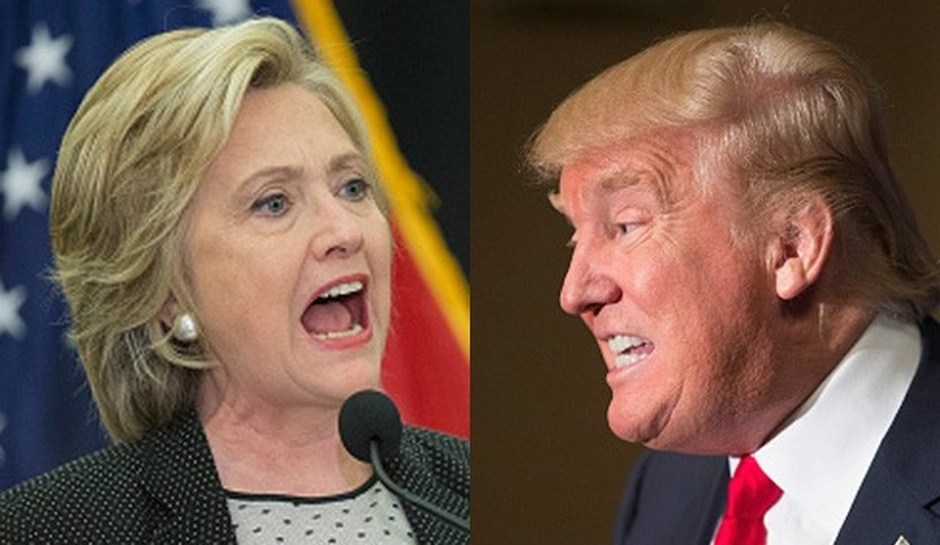
Hillary Clinton said Tuesday that Donald Trump would send the U.S. economy back into recession, warning his “reckless” approach would hurt workers still trying to recover from the 2008 economic turbulence. Clinton’s address in Ohio, one of the most important battleground states, sought to define Trump as little more than a con man, whose ignorance and ego would tank the global economy, bankrupt Americans and risk the country’s future. “Every day we see how reckless and careless Trump is. He’s proud of it,” the Democratic presidential candidate said. “Well, that’s his choice. Except when he’s asking to be our president. Then it’s our choice.” The speech was similar to one earlier this month in San Diego in which Clinton tried to undercut the Republican candidate’s foreign policy credentials. This time, at an alternative high school in Columbus, she questioned whether Trump has the temperament to guide the economy and repeatedly pointed to his business record as evidence of how he would treat small businesses and working families. “Just like he shouldn’t have his finger on the button, he shouldn’t have his hands on our economy,” Clinton said. Her speech included stinging one-liners, including a takedown of Trump’s best-selling books. “He’s written a lot of books about business. But they all seem to end at Chapter 11,” she said, in an allusion to the U.S. bankruptcy code. Trump responded on Twitter as Clinton delivered her address, writing in one tweet: “How can Hillary run the economy when she can’t even send emails without putting entire nation at risk?” He appeared to be referring to Clinton blending her personal and official emails on a homebrew server in her house, while she was secretary of state. The businessman later appeared to embrace one of Clinton’s attack lines, writing: ‘I am “the king of debt.’ That has been great for me as a businessman, but is bad for the country. I made a fortune off of debt, will fix U.S.” Republican National Committee chairman Reince Priebus said Clinton was “the last person qualified” to talk about improving the economy, pointing to “eight years of disastrous Obama policies.” Clinton used Trump’s own statements to undercut his economic credentials, citing remarks he made that that U.S. could sell off assets, default on its debt and that wages are too high. She also repeated a comment he made that pregnant employees are an “inconvenience.” Clinton said financial markets often “rise and fall” on comments by presidential candidates. Suggesting the United States could default on its debt could cause a “global panic,” she added. She also seized on a report Monday by Moody’s Analytics which found Trump’s plans would lead to a “lengthy recession,” costing nearly 3.5 million American jobs. The analysis by Moody’s Mark Zandi, a Clinton donor and former economic adviser to Republican Sen. John McCain‘s 2008 campaign, predicted Trump’s approach would swell the federal debt as the U.S. economy becomes more isolated by less trade and cross-border immigration. Trump has pointed to trade as a major difference with Clinton, saying last week that her support of past trade deals, such as the North American Free Trade Agreement, has cost the country “millions of jobs.” He also has assailed her promotion of the Trans-Pacific Partnership trade deal as Obama’s secretary of state as a sell-out of U.S. workers. Clinton announced her opposition to the TPP last October, saying it failed to meet her test of providing good jobs, raising wages and protecting national security. Brushing it aside, Clinton said there was a difference between “getting tough on trade” and “recklessly starting trade wars.” She noted that many of Trump’s products are made in countries like China, Mexico, Turkey, India and Slovenia. Bolstered by more than $40 million in television advertising, Clinton and her Democratic allies are trying to use this period before next month’s Democratic National Convention to disqualify Trump among moderate voters on the economy and prevent him from successfully wooing working-class voters in battleground states like Ohio, Wisconsin and Michigan. Fundraising reports filed Monday showed Clinton with a big advantage, starting the month with $42 million in the bank compared with Trump’s $1.3 million. Clinton was expected to talk about “ambitious new goals” for the economy Wednesday in Raleigh, North Carolina. Republished with permission of The Associated Press.
Donald Trump’s campaign fundraising falling far short of Hillary Clinton’s
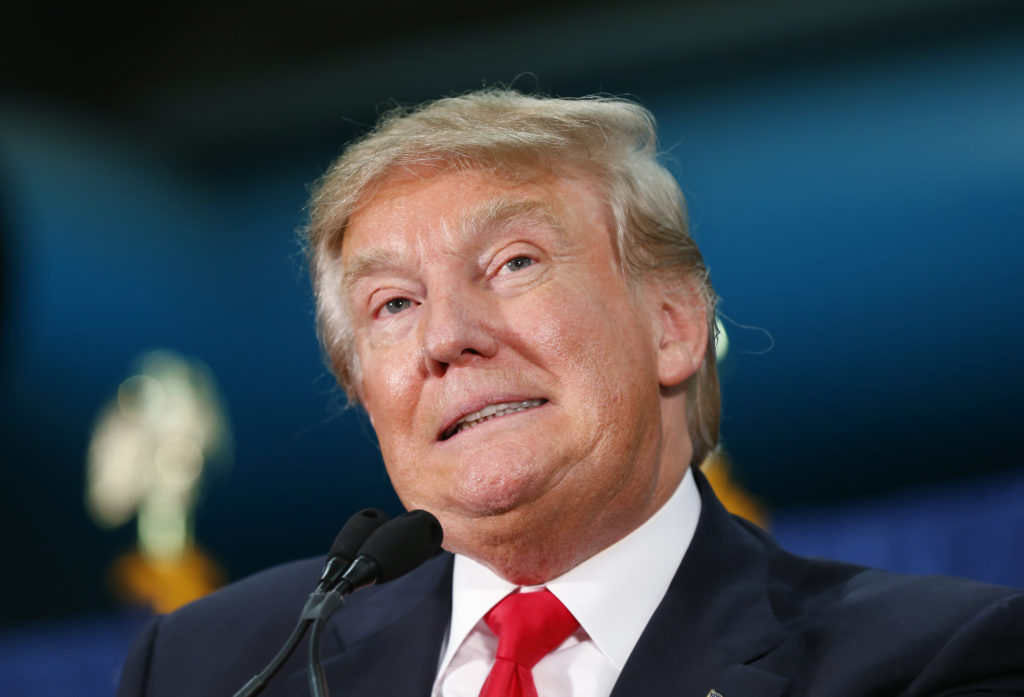
By any measure, Donald Trump’s fundraising is falling far short of his Democratic rival, Hillary Clinton. Together, Trump and the Republican National Committee brought in about $18.6 million in May, including another loan from the candidate. Clinton and the Democratic National Committee raised more than double that. His campaign started June with $1.3 million in the bank; hers, with $42 million. Wealthy Clinton donors also chipped in another $12 million for a super PAC supporting her, while one backing Trump pulled in just over $1 million. Here are the highlights of the most recent fundraising reports in the 2016 federal elections: TRUMP AND GOP CASH SLOW Neither Trump nor his party saw an immediate fundraising boost last month, even though he emerged victorious on May 4 after a primary contest once crowded with 16 opponents. Donors gave just over $3 million to Trump’s campaign. The billionaire businessman lent his effort another $2.2 million, bringing his total outlay over the past year to about $46 million. The RNC — which Trump says he is counting on to provide much of his general election operations — took in about $13 million last month. That’s about what it raised in April, without a presidential candidate to generate fundraising enthusiasm. The party began June with about $20 million in the bank and $7 million in debt. By comparison, four years ago, the RNC began June with about $60 million in the bank. In May 2012, presumptive nominee Mitt Romney and the RNC raised more than $76 million, about quadruple this May’s haul. The figures appear to undercut Trump’s comments that money is “pouring in” to the party. TRUMP PACS Great America PAC, one of several groups that say they want to help Trump win the White House, took in $1.4 million last month, the most it has raised so far. One of its top donors was Stanley Hubbard, a Minnesota-based broadcasting executive who decided to back Trump after putting money behind many of his GOP rivals in the primary contest. He gave $25,000. Douglas Kimmelman, an investment manager at Energy Capital Partners, gave $50,000. The super PAC also benefited from about $83,000 in donated television production by Rapid Response Television, which lists an address in Stafford, Texas. Most of the other pro-Trump groups were not due to file Monday, having either just formed recently or being subject to a different reporting schedule. CLINTON MONEY Clinton’s campaign raised more than $26 million in May, her fundraising report shows. Throughout May, Clinton was embroiled in a primary contest with Vermont Sen. Bernie Sanders, and she spent about $14 million, the May report shows. For his part, Sanders raised $16.4 million and spent $12.9 million last month. He started June with $9.2 million in cash, which was better than he did in April, when he ended the month with only $5.7 million on hand. Clinton also had a hand in bringing in money for the DNC in May. The committee reported raising $12.3 million, but continued to report millions in debt. At the start of this month, the committee reported about $9 million cash on hand, but it also reported $7.9 million in debt. Additionally, a super PAC helping Clinton’s general election effort raised $12 million in May. Some of that group’s biggest contributors include billionaire financier Donald Sussman of New York, who gave $2 million, and Chicago media billionaire Fred Eychaner, who gave $3 million. New York financier Bernard Schwartz contributed $1 million. SENATE CASH Donors are beginning to give big to efforts beyond the presidential race. On the Republican side, the Freedom Partners Action Fund, a political group led by conservative billionaire industrialists Charles and David Koch, collected $8 million, mostly in large donations, last month. Among the key donors: Charles Koch, who gave $3 million; Wisconsin roofing company executive Diane Hendricks, who gave $2 million; and Virginia developer Richard Gillam, who gave $1 million. Arkansas-based poultry company Mountaire Corporation contributed $2 million. Freedom Partners is focusing on retaining the Republican Senate majority. The group has already produced ads against Democratic candidates Ted Strickland in Ohio and Russ Feingold in Wisconsin, among others, and began June with almost $14 million in available cash. Democratic super PACs active in the House and Senate races include House Majority PAC and Senate Majority PAC. Eychaner gave $2 million to each group. Hollywood billionaire Haim Saban gave $1 million to the Senate Majority PAC, which raised a total of $4.7 over the month and had about $11.4 million as of June 1. House Majority PAC raised almost $3 million in May and began this month with just under $12 million in the bank. Republished with permission of The Associated Press.
Ted Cruz raises $20 million in last 3 months, cementing status as contender
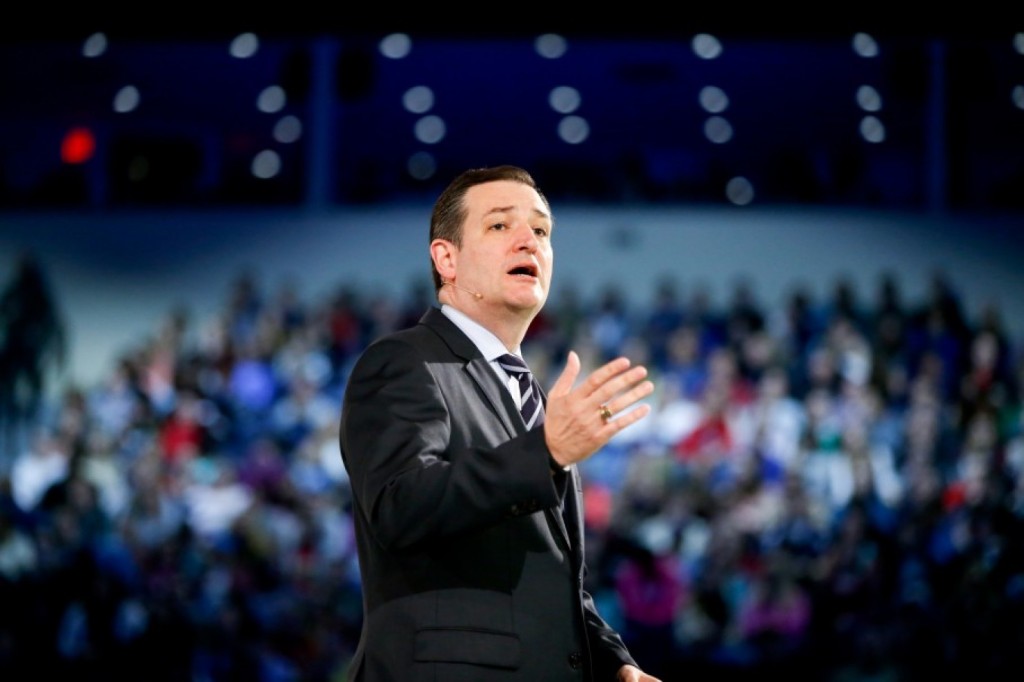
Republican presidential candidate Ted Cruz‘s campaign said Wednesday it has raised nearly $20 million over the past three months, a large haul that further cements the Texas senator’s status as a serious contender for the nomination heading into the Iowa caucuses. Cruz’s campaign said in a memo to supporters that he will finish the year having raised over $45 million. That means his haul over the final quarter will be significantly larger than the $12 million he raised during the previous three months of the year. He had raised more than $26 million through the end of September. “Just over a month away from the start of the caucuses and primaries we have a network in place with the resources required to win that is the envy of every other campaign,” read the memo, sent Wednesday by Cruz Campaign Manager Jeff Roe. The campaign, he said, has received over 670,000 donations from over 300,000 donors, spanning 66 percent of U.S. ZIP codes. The memo did not disclose how much the campaign has spent or how much cash it has on hand heading into the new year. But the campaign had more than $13 million in the bank at the end of September – more than any of Cruz’s rivals. Candidates aren’t required to report their end-of-year fundraising numbers until Jan. 31, the eve of the Iowa causes. Republished with permission of the Associated Press.
Bill Clinton opening fundraising spree for wife’s campaign
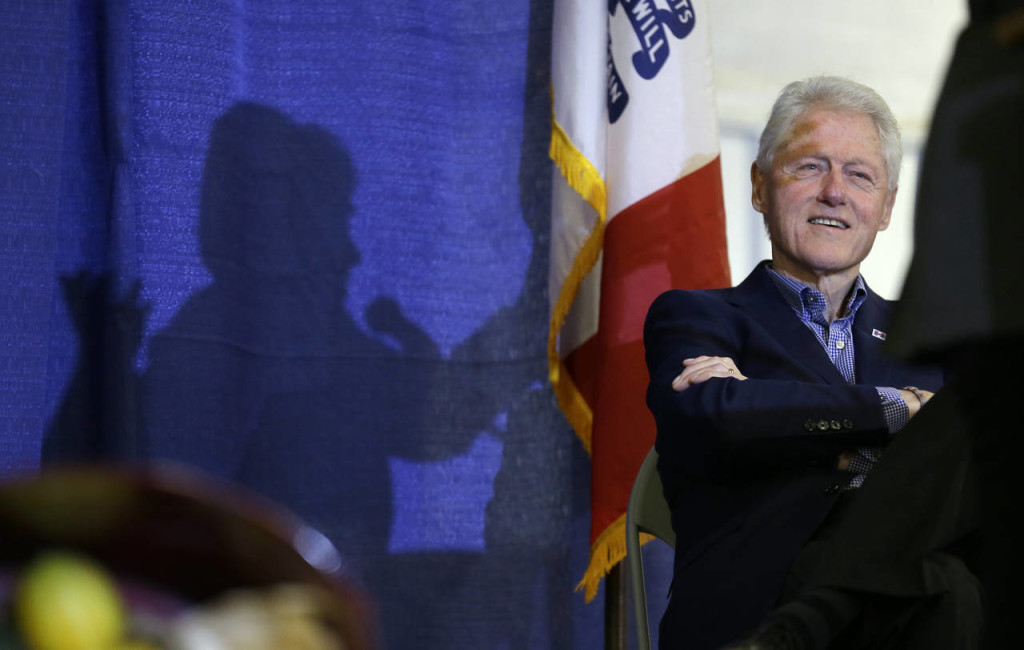
Former President Bill Clinton is going on a fundraising swing reminiscent of his presidential campaigns of the 1990s. But this time he’s doing it for his wife. Hillary Rodham Clinton‘s presidential campaign has scheduled more than a dozen December events featuring the former president as her team prepares for an end-of-year finance deadline ahead of the first contests in Iowa and New Hampshire. The fundraising blitz, Bill Clinton’s most aggressive stretch of the year, shows how Hillary Clinton’s campaign can multiply her money largesse with the help of her husband, one of the Democratic party’s most prolific rainmakers. Working together, the couple will hold at least five fundraising events on some single days in December. After staying behind the scenes for much of the year, Bill Clinton has slowly begun taking a larger public role in the campaign. And it isn’t just with fundraising. He introduced pop singer Katy Perry at a concert before the Iowa Democratic Party’s Jefferson-Jackson dinner last month and appeared with his wife at a party barbecue in Ames, Iowa, last week. “No one knows her better than him and no one knows the process better, so it’s a natural fit,” said Ira Leesfield, a Miami attorney and longtime Clinton donor. “It’s like Derek Jeter taking the field when he was 38.” The fundraising push comes as Vermont Sen. Bernie Sanders, Hillary Clinton’s main Democratic challenger, makes campaign finance reform a central part of his message. Hillary Clinton’s ties to Wall Street and financial industry donors will influence her agenda, Sanders has said. Bill Clinton kicks off December with fundraisers in Seattle, Los Angeles, the Phoenix area and in Laredo, Texas, where he will join with Rep. Henry Cuellar, a Texas congressman who represents the state’s Rio Grande Valley. The former president then raises money on Dec. 7 in Rhode Island with the state’s Democratic governor, Gina Raimondo, and Rhode Island’s congressional delegation. He headlines events in North Carolina later that same day. Later that week, the couple will show how they can spread their fundraising clout around the country. On Dec. 10, Hillary Clinton raises money in New York City while her husband meets with donors in Pennsylvania with stops in Pittsburgh, Bethlehem and Scranton. The next day, the former secretary of state will fundraise in Tulsa, Oklahoma, and St. Louis while her husband appears at events in the Chicago area and Munster, Indiana. In mid-December, the ex-president will raise money in Washington, D.C., including an event at the home of longtime Democratic powerbrokers Vernon and Ann Jordan. He will travel to Richmond later that day for a fundraiser with Virginia Gov. Terry McAuliffe, a friend and fundraiser for the Clintons. The Clintons will head into the holidays with a New York City dinner concert with musician Sting on Dec. 17. The event will benefit a new joint fundraising committee called the Hillary Victory Fund and will range from $33,400 per person to $100,000 for couples who serve as event chairs. David Brock, a Clinton supporter who runs several progressive groups aiding her candidacy, said Bill Clinton is a “gifted orator who has the ability to move people.” Brock recalled how in the spring of 2013 the former president spoke at a donor conference for two of his projects, American Bridge 21st Century and Media Matters. It was no standard stump speech, Brock said. “Rather, off the cuff, he wove an intricate tapestry for probably 45 minutes about the history of news and its relation to democracy,” he said. The 150 donors in the New York hotel ballroom were “in a trance,” Brock said. “There’s no one else at his level who is that good,” Brock said. “He says things about you that you can’t say about yourself, making him quite an effective endorser and validator.” Republished with permission of the Associated Press.
Marco Rubio to host ‘strategy summit’ with donors in Las Vegas
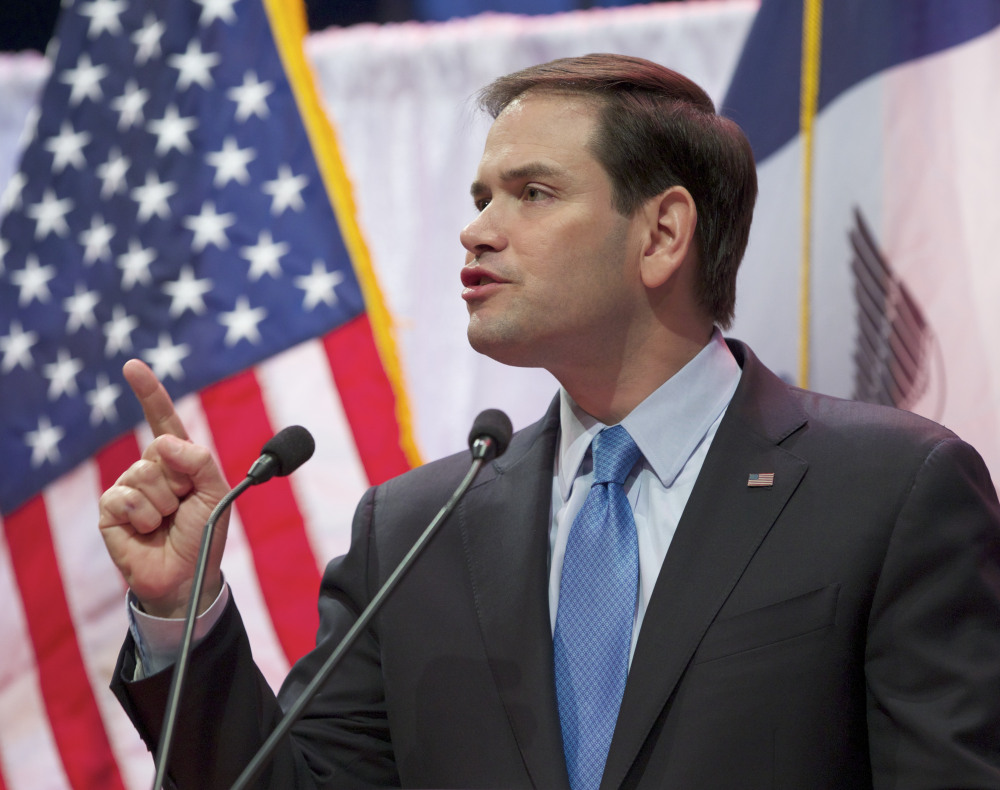
As Marco Rubio enjoys somewhat of a resurgence in national polling, the Republican presidential candidate will host a two-day Las Vegas summit with several top donors next week. The move by the Florida senator is an attempt to woo former backers of Wisconsin Gov. Scott Walker, who dropped out of the race last week after a poor showing at the second televised GOP debate. Rubio’s poll numbers have been on the rise. First reported by Sean Sullivan of the Washington Post, the football-themed “Quarter Four Strategy Summit” will be Oct. 8 and 9 – days after the close of the third quarter fundraising period — at the Bellagio on the Las Vegas Strip. Events include a “breakfast and team talk” and picnic dinner with the senator, according to the event invite. The meeting is to focus on fundraising strategy for the final three months of 2015. While in Nevada, a key early primary state, Rubio expects to hold a series of campaign events. Candidates have until mid-October to report fundraising totals to the Federal Election Commission.
Jeb Bush donors pitch ‘long haul’ after initial ‘shock and awe’
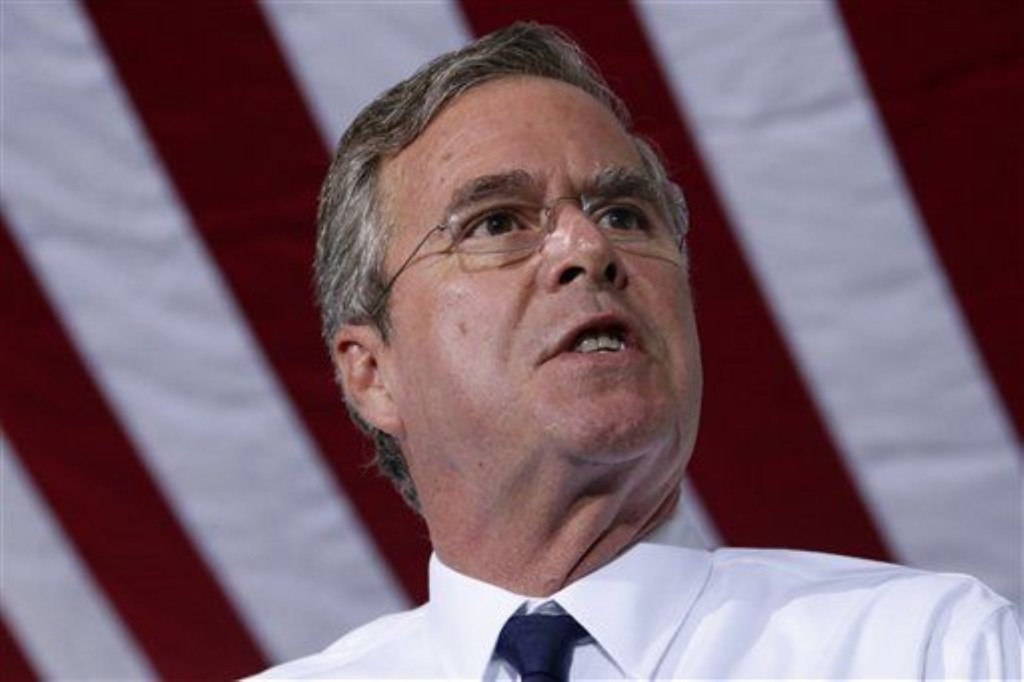
Jeb Bush‘s challenge in the first half of the year was daunting yet simple. To be considered a fundraising success, the Republican presidential candidate had to hit the magic number of $100 million, an ambitious goal set by some in his campaign. And he did. As another fundraising period ends, what now constitutes success for Bush isn’t as clear cut. No longer the front-runner in preference polls, Bush won’t repeat as the champion at raising money in the GOP’s 2016 field, lapped in the past three months by retired surgeon Ben Carson and perhaps by Texas Sen. Ted Cruz, too. “They created such a high bar,” said Spencer Zwick, a top Republican donor who was 2012 GOP presidential nominee Mitt Romney‘s finance chief. “Now anything less than $100 million in a quarter seems small.” But Bush’s financial team and strategists argue that he should now be judged by a different benchmark. Their mantra: He’s built to last. Using phrases like “go the distance,” ”marathon” and “long haul,” they argue that the former Florida governor is uniquely positioned to outlast other candidates, regardless of the fundraising number he posts for the third quarter. “If we were frozen with just the resources we have right now, he could still be in the game right to the very end,” said Kenneth Lipper, a New York financier and top fundraiser for Bush. “Longevity is the right word.” Bush’s finance team describes his fundraising in the past three months as “respectable” and “fine,” while declining to provide the specifics on just how much they raised. That detail will come later this month in a report filed with federal regulators. It’s true that the summer months of the year before the election are typically the bleakest time for candidates to raise money. Romney collected $14.2 million during the same period in 2011, the least of any three-month period between the beginning of his campaign and when he secured the Republican presidential nomination. Yet the summer didn’t slow down Carson, who has never run for office and has raised $20 million since July. Bush aides say they also expect to be topped by Cruz, the Texas senator with unvarnished contempt for his own party’s leadership and an enthusiastic tea party following. Bush has scored harder-to-measure fundraising gains, such as winning the support of Anthony Scaramucci, a national fundraising leader for former candidate Scott Walker. Next week, Bush heads back to Chicago, where he quickly converted former Romney supporters early this year, for a series of fundraisers hosted by wealthy donors who helped get his super PAC soaring. Bush’s fundraising still has a distinctly presidential look, in part because it includes so many who raised money for his father and brother. Bush’s major donors will gather in Houston at the end of the month for a “Jeb celebration” that includes Presidents George H.W. and George W. Bush. “For others, stardom is ephemeral. I’m very happy to see Jeb hold his own,” said Fred Zeidman, a Houston businessman raising money for Bush. “We have the most money and we can outlast. He’s showing the discipline of a long-term candidate.” Unlike Walker, who dropped out of the race because he couldn’t raise enough money to pay for his 100-employee political operation, Bush’s campaign fundraising and campaign scale are in sync, his donors said. That doesn’t mean they are comfortable where they are, or expect to be any time soon, said longtime Bush supporter Al Hoffman, the founder of Florida’s largest real estate development company. “We’re all worried. That’s what we do, we worry all the time,” Hoffman said. “But it’s a healthy sense of anxiety that we can always do more that keeps us going.” Craig Duchossois, a Chicago-area private equity investor and Bush donor, said national polls showing Bush in single digits unnerves some less-seasoned donors. He admits some movement this fall by Bush in early-voting state surveys “certainly would be encouraging.” But he argues that more than anything else, success for Bush at this stage is raising enough money for his actual campaign to stay in the race and take advantage of his super PAC. Helped by two dozen million-dollar checks, it amassed $103 million in donations through the end of June — more than double any other candidate-specific super PAC. “Let me suggest to you that fundraising is not the metric as important for Jeb as it is for everyone else,” said Duchossois, who hosted an event for Bush’s super PAC in February. “Jeb’s goal, and what we consider success, is getting his message across.” Bush, who as a candidate can no longer direct the super PAC, left it in the hands of his top media strategist, Mike Murphy. It has started spending its millions introducing Bush as “a committed conservative” to voters in Iowa, New Hampshire and South Carolina. The tentacles of the official campaign, which also just began advertising, have spread well beyond those early voting states. That’s partly why Austin Barbour said he joined Bush’s campaign after former Texas Gov. Rick Perry, the candidate he’d been helping, dropped out last month. Barbour will help Bush organize a push for wins on March 1, when voters in a dozen states including Texas and Virginia cast their primary ballots. “The campaigns that have the resources to go deep into April,” Barbour said, “those are the ones that are going to survive and thrive. You’ve got to be prepared to go the distance.” Republished with permission of the Associated Press.
Jeb Bush, Hillary Clinton dominate early 2016 presidential fundraising
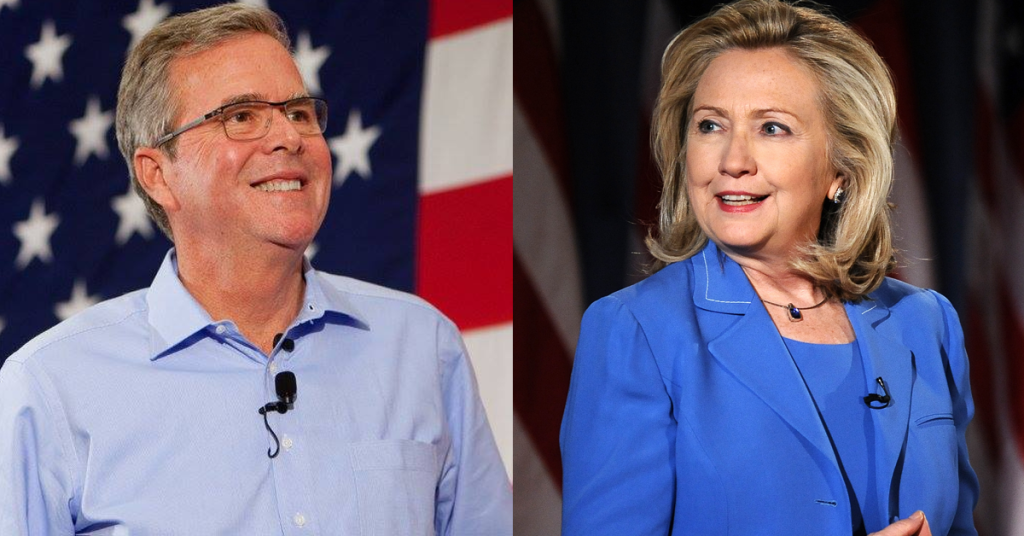
The two presidential candidates whose immediate families include former presidents loom large in early fundraising for 2016. Democrat Hillary Rodham Clinton and Republican Jeb Bush are building mammoth political operations to power them through the primary contests next year. Their financial backers have poured more than $176 million into their campaigns and the super PACs specially designed to boost them. Wednesday provided the first peek behind the fundraising curtains of most presidential candidates, with campaigns filing initial fundraising reports to federal regulators. Super PACs will file similar documents at the end of this month. The new reports show that Clinton’s campaign is spending money at a rapid clip: The former first lady and front-runner in the Democratic race has paid out 40 percent of the $47 million in donations that she amassed by the end of June, employing 364 people and building infrastructure across the country in preparation for next year’s general election. Bush, the former Florida governor and son and brother of ex-presidents, spent more than one-quarter of the $11.4 million in fundraising that he collected in the final 16 days of June, according to the reports. The campaign invested heavily in payroll and policy consulting. Wednesday’s Federal Election Commission reports cover financial activity between April 1 and June 30, a period when almost all of the 22 presidential hopefuls jumped into the race, and list the names of everyone who gave at least $200. The maximum contribution for the primary is $2,700. The FEC documents also showed how candidates are spending – or saving: In the crowded Republican field, Florida Sen. Marco Rubio started July with almost $10 million, just ahead of Bush and Texas Sen. Ted Cruz, and in front of the rest of the GOP pack. Yet a candidate’s own campaign is just one page in the money story. Super PACs can accept contributions of any size. They’re limited on how closely they can work with the campaigns but are often staffed with close confidants of the candidates. In many cases, the candidates themselves have “blessed” the super PACs and pitched in with their fundraising. These and other powerful outside groups account for about two-thirds of the about $400 million raised so far for the presidential election, according to an Associated Press tally of FEC documents and financial totals provided by the groups that haven’t yet reported. No current candidate has made as much use of super PACs and their unlimited-donation potential as Bush. Before he officially declared his candidacy, he spent the first six months of the year raising huge sums of money for Right to Rise. That group says it has raised a record $103 million. Outside groups are furthering the ambitions of at least four other Republican presidential aspirants: Rubio, Cruz, Texas Gov. Rick Perry and Ohio Gov. John Kasich. In each case, the fundraising for those entities is outpacing the fundraising for their campaigns. Rubio’s overall take from donors — $44.7 million to his campaign and two outside groups — includes $15.8 million for a nonprofit that won’t file any public budget information until at least next year and keeps its donors secret. Some donors are secret for another reason: They’re too small. The FEC only requires names and identifying information for people who give more than $200. These kinds of contributors are underwriting Vermont Sen. Bernie Sanders‘ Democratic presidential campaign, FEC reports show, accounting for more than three-quarters of the $13.7 million in contributions he collected. Sanders also transferred $1.5 million from his dormant Senate campaign account. Also doing well on the small-donor front is Republican retired neurosurgeon Ben Carson. About 68 percent of his $10.6 million raised this year was in contributions of $200 or less. Carly Fiorina, a California technology executive also seeking the GOP nomination, raised 43 percent of her $1.7 million this way. Because the money is coming directly to those candidates, they have tighter control over how it is used. By comparison, 3 percent of Bush’s campaign cash and 17 percent of Clinton’s came from small donors. A few major Republican candidates are missing from the initial campaign finance reports. Kasich hasn’t officially launched his campaign yet. Wisconsin Gov. Scott Walker and New Jersey Gov. Chris Christie made their campaigns official too recently to file second-quarter FEC reports, although a Christie-allied super PAC said on Tuesday that it has raised $11 million. The first look at their campaign numbers will come in mid-October. Republished with permission of The Associated Press.
Bobby Jindal reports raising $597K for presidential race
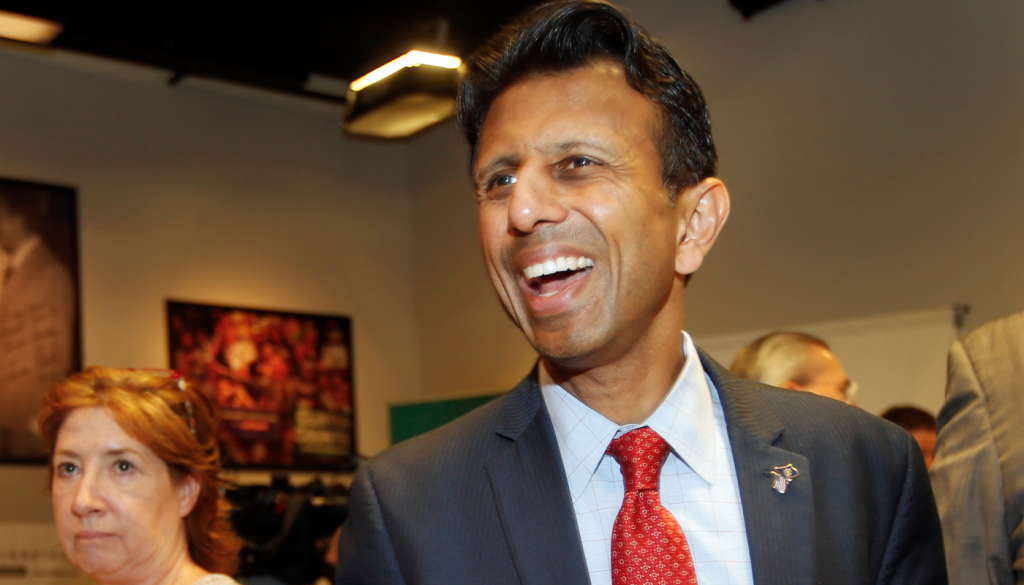
Louisiana Gov. Bobby Jindal, a Republican presidential candidate, has raised about $579,000 for his campaign. That’s according to financial reports his campaign filed Wednesday with federal regulators. Most presidential candidates are due to file similar documents by midnight. The GOP field is expected to have 17 candidates. Jindal announced his candidacy June 24 and raised the money in about a week. Documents show he is drawing most of his contributions from a base of supporters in Louisiana. The reports cover through the end of June. The report shows he spent about $65,000 in that time. Republished with permission of The Associated Press.
Marco Rubio on campaign swing through California
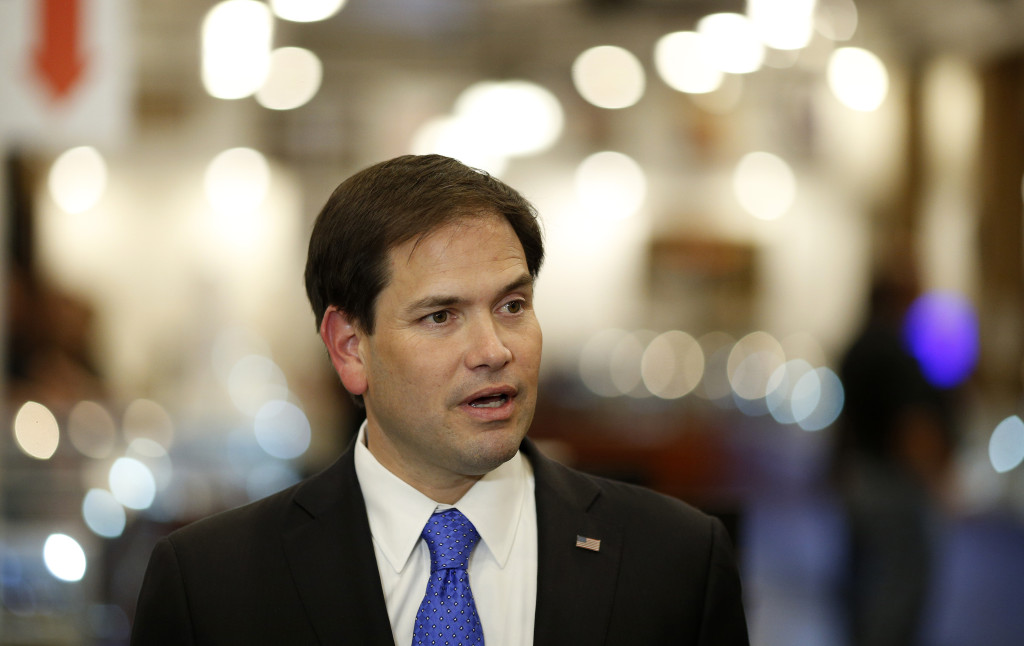
Republican presidential candidate Marco Rubio is turning to a state known as a perennial source of campaign money. In California, Rubio has private fundraisers on his agenda in San Francisco and in Los Angeles. The Florida senator also plans to deliver a speech Tuesday in Los Angeles, the only public event on his two-day swing. It’s unclear whether California will factor in a Republican primary fight, apart from its concentration of donors. If the nomination is locked up in the campaign’s early stages, California’s June 2016 primary election could be a mere formality. But it could also become a battleground if the race is tight. It’s Rubio’s first visit to California since he declared his candidacy this month.


